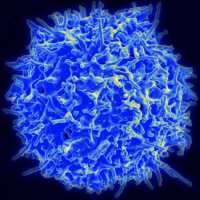The Cancer Survivors Network (CSN) is a peer support community for cancer patients, survivors, caregivers, families, and friends! CSN is a safe place to connect with others who share your interests and experiences.
Looking for those treated with AEPA / CAPDac protocol
My 16 year old daughter was just diagnosed with Classical Hodgkin Lymphoma stage 2a. One of the treatment options offered by Stanford is AEPA/CAPDac. Stanford also refers to it as HLHR13.
Consists of 2 cycles with Adcetris (brentuximab vedotin), Etoposide, Prednisone and Dozorubicin. Followed by one cycle of Cyclophosphamide, Brentuximab Vedotin, Prednisone and Dacarbazine). For a total of 10 weeks of chemo.
While I have found the published studies on this treatment, I can’t find posts on this board or anywhere else by anyone else treated with this protocol. Is anyone familiar with it? Is it called something else and that is why I can’t find any other patients on it?
I’m also trying to find out:
- pros and cons of this versus other options (not going to do ABVD plus radiation)
- what to expect with each drug, side effects and which days will be harshest for her -this protocol calls for 5 days straight of Etoposide during week 1 and week 4. Expected side effects of that?
- guidance and suggestions from someone who had been though this treatment
- suggestions from other parents on how to help teenager through this
Comments
-
Very sorry you are having trouble finding other recipients of this protocol. Stanford is a world-class facility and this protocol would almost certainly be far less toxic than the age-old ABVD regimen, in which the "A" and the "B" have known heart and lung toxicity, respectively. Newer regimens are the result of extensive research and are offered when FDA approved or permitted. As well, the regimen will be stopped if adverse reactions are seen, or if it is ineffective. Even so, the vintage ABVD regimen has shown a very high rate of success in classical Hodgkin's. In all cases, there is no way of knowing if a given therapy will work in any individual. There is no way of knowing which regimen is best - only the statistics gathered from clinical trials. However, the Adcetris is an antibody/drug conjugate and has shown remarkable results against certin T-Cell lymphomas. It targets a protein on the cancer cells called CD30 and "should be" very effective against Hodgkin's.
-
I would ask her doctor at Stanford what you just asked us.... They are obligated to explain why they think this is best. They should also provide articles defending their opinion, free of charge. As Po wrote, Stanford is one of the absolutely best. Decades ago, they developed the so-called "Stanford V" against lymphoma. Ask them to discuss the differences.
I feel that the best way to proceed is to get a doctor whom you trust, and thereafter, mostly accept their recommendations. It can cause a lot of anxiety to feel that you must research everything that is suggested for your daughter. Worry, of course, is inevitable and normal, and it is good to ask questions. But beyond that, many get bogged down in demanding 'the best in the world,' when what is best in the world for any given individual can only be derived from statistics of patients who present with the same profile, or set of clinical specifics. And know that a Stage II case of cHL is nearly always easily controlled.
-
I took a similar treatment protocol to this with a similar diagnosis (classical hosgkin lymphoma stage 2b). It was a through a clinical trial, for what its worth i am now in remission, without discernible heart or lung damage. I had a few cycles of abvd, followed by avd with brentuximab. Then 5 cycles of nivo. The brentuximab is definitely easier on the body, but not a cake walk. The above protocol seems like a solid bet to me. Nivo was great but id did eat my thyroid. I would look into fasting if you want to avoid some of the nausea and hair loss problems.
Discussion Boards
- All Discussion Boards
- 6 Cancer Survivors Network Information
- 6 Welcome to CSN
- 122.6K Cancer specific
- 2.8K Anal Cancer
- 457 Bladder Cancer
- 312 Bone Cancers
- 1.7K Brain Cancer
- 28.6K Breast Cancer
- 407 Childhood Cancers
- 28K Colorectal Cancer
- 4.6K Esophageal Cancer
- 1.2K Gynecological Cancers (other than ovarian and uterine)
- 13.1K Head and Neck Cancer
- 6.4K Kidney Cancer
- 683 Leukemia
- 804 Liver Cancer
- 4.2K Lung Cancer
- 5.1K Lymphoma (Hodgkin and Non-Hodgkin)
- 242 Multiple Myeloma
- 7.2K Ovarian Cancer
- 70 Pancreatic Cancer
- 493 Peritoneal Cancer
- 5.6K Prostate Cancer
- 1.2K Rare and Other Cancers
- 544 Sarcoma
- 744 Skin Cancer
- 661 Stomach Cancer
- 193 Testicular Cancer
- 1.5K Thyroid Cancer
- 5.9K Uterine/Endometrial Cancer
- 6.4K Lifestyle Discussion Boards

